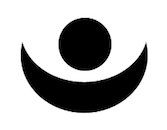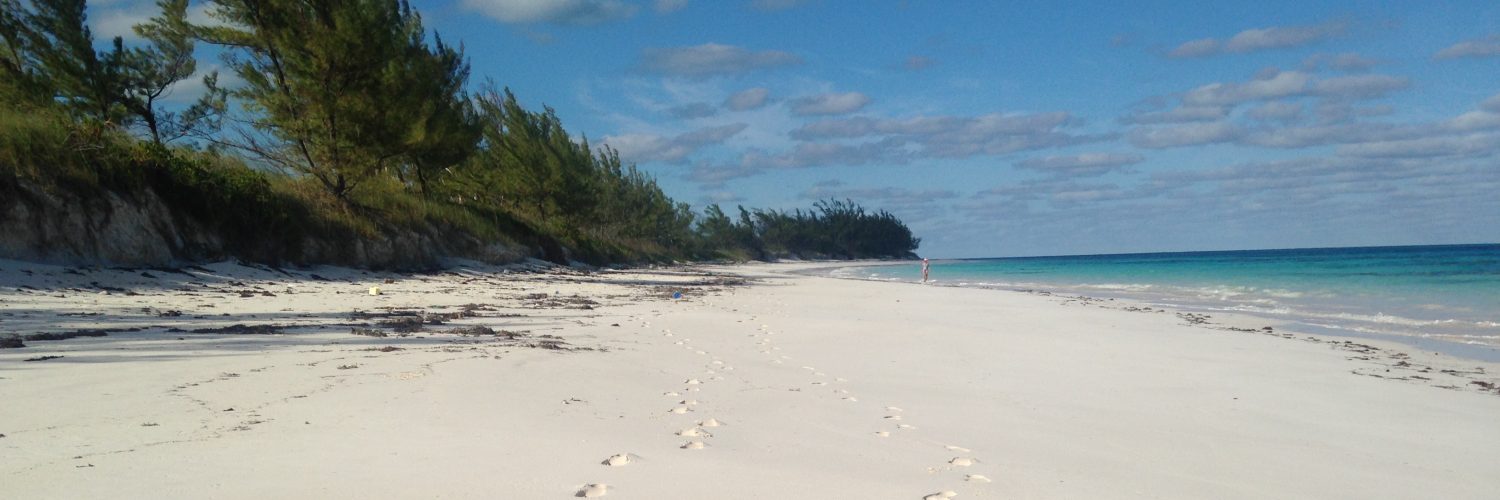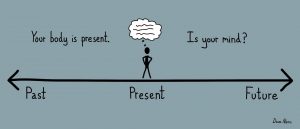In our fast-paced world, rest has become a crucial aspect of maintaining our mental and physical well-being. While sleep is the most well-known form of rest, there are other types that are equally essential for our overall health. Understanding and incorporating the seven types of rest into our daily lives can help us recharge and stay focused, leading to increased sense of achievement and well-being. In this article, we’ll explore these seven types of rest and provide tips for incorporating them into your routine.
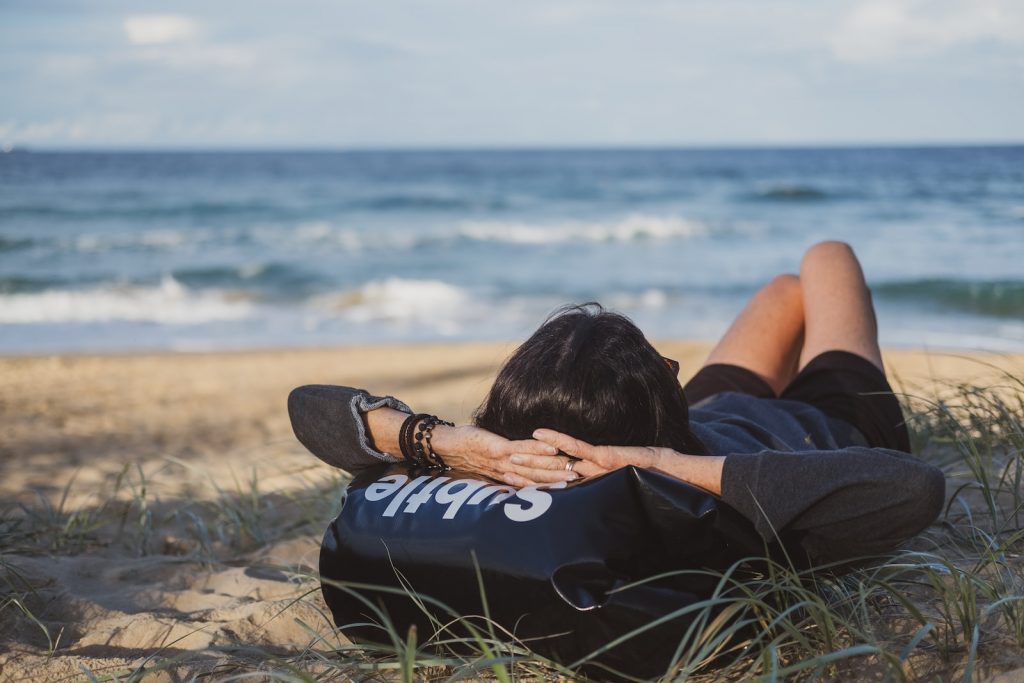
Physical Rest
Physical rest is the most familiar form of rest, and it’s often associated with sleep. However, it can also include other activities that allow our muscles and joints to recover from the strains and stresses of daily life. Examples include stretching, yoga, and massage. Incorporating physical rest into your day can reduce fatigue, improve muscle recovery, and lower the risk of injury.
Mental Rest
Mental rest is essential for reducing brain fog and maintaining focus throughout the day. This type of rest involves taking breaks from cognitive tasks, such as problem-solving, decision-making, and creative thinking. Meditation, mindfulness exercises, and stepping away from screens can all help in providing mental rest. Aim for periodic short breaks during the day and create a routine that allows your mind to recharge regularly. Taking a mindful tea break or a mindful moment outside can really make a difference.
Emotional Rest
Emotional rest focuses on processing and expressing our feelings to maintain emotional balance. This type of rest can be achieved through journaling, therapy, or simply having open conversations with a trusted friend or family member. By addressing our emotions and allowing ourselves to be vulnerable, we can experience relief and a sense of emotional well-being. It’s often said in mindfulness practice; what we feel, we heal.
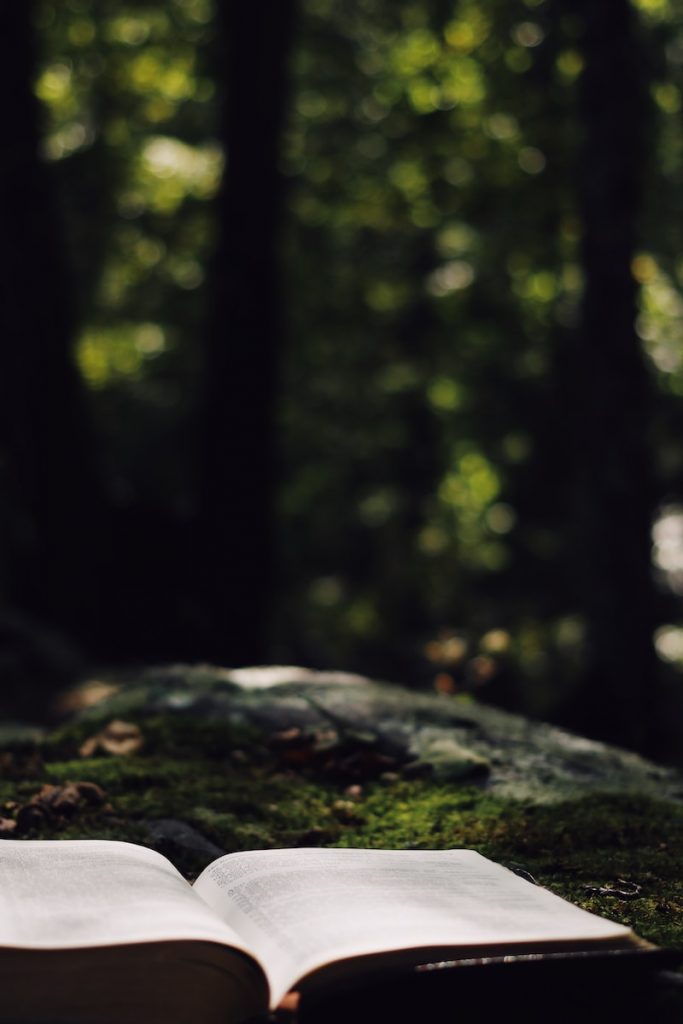
Sensory Rest
Sensory rest is essential for counteracting the constant bombardment of stimuli from our environment, such as noise, light, and screen time. To practice sensory rest, create a calm and quiet space where you can retreat and unplug. Activities like reading a book, taking a walk in nature, or closing your eyes for a few minutes can all help to reduce sensory overload and provide restorative benefits. Earplugs can also be really valuable to increase sensory rest when you share space with others and it’s harder to find quiet.
Social Rest
Social rest is the act of finding balance between socialising and solitude. This type of rest can involve spending time with people who recharge your energy or seeking out moments of solitude to regroup and reflect. Identify which relationships in your life provide support and comfort, and make an effort to prioritise those connections.
Creative Rest
Creative rest is the process of rejuvenating our creative energies and nurturing our imagination. It involves stepping away from our usual creative outlets and engaging in activities that inspire and invigorate us. Visiting an art gallery, attending a concert, or exploring a new environment can all help to stimulate our creativity and provide the rest our minds need to stay innovative.
Spiritual Rest
Spiritual rest is the practice of connecting with a higher power, whether that is through religion, spirituality, or a sense of purpose in life. This type of rest can help us find meaning and foster a sense of inner peace. Spiritual rest can be achieved through prayer, meditation, or participating in religious or spiritual activities that resonate with your beliefs.
Incorporating the seven types of rest into our daily lives can help us maintain a balanced and healthy lifestyle. By understanding the different ways we can rest, we can address our individual needs and prioritise self-care. So, take a moment to assess which types of rest are missing from your life and begin to create a well-rounded rest routine that supports your overall well-being.
Rest doesn’t need to be another thing that’s added to your ‘to do’ list. Once you identify which types of rest you need more of, try adding micro-doses of rest into your day as often as possible. Leave yourself post-it note reminders, set alarms on your phone, add mini rest breaks to your calendar – whatever it takes to create the habit of healthy rest.
Join us at The Well Nest for regular workshops, classes and retreats to help you find rest and self-care.
Natural Balance Wellness Retreat – Sattva
Sunday 24th July 2022, 10 am – 4 pm
With modern life becoming ever faster and more demanding, the rise of a movement to live well and in natural harmony with the environment (Sattva) is becoming more appealing. The concept of Sattva is central to this desire to live simply, live purely and live happily. Sattva is the wish to have an awakened life, peaceful mind, vital body and pure spirit.
If you have a wish to ‘feel’ life a little more; to slow down and find your true purpose, then it’s time for you to rediscover your natural balance. This day retreat is designed to bring body, mind and spirit back into natural balance through carefully designed movement, creativity, food and deep relaxation. Retreats at The Well Nest are led by our resident expert and Director, Hannah. With 20 years experience in yogic study and practice, you couldn’t be in better hands.
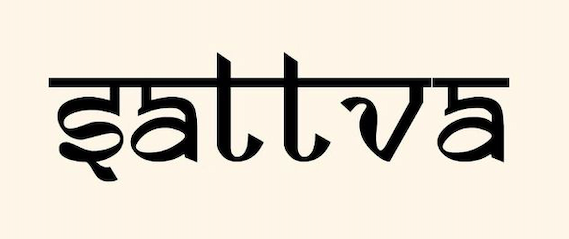
Programme for the day:
9.45 am – Arrival and welcome
10 am – Kundalini yoga kriya (breath, mantra, movement and rhythm) to balance body, mind and spirit. The focus of this session will be creating hormonal balance for overall wellbeing
11 am – Creative aromatherapy workshop. Create natural, organic self-care products to be kinder to the body and to the planet. We will create a collection of products from bath salts, body scrubs, sugar scrubs and deodorants.
1.30 pm – Lunch and gin tasting at Mercia Spirits Lab. Delicious, healthy platters with bespoke gin creations and herbal additions.
3 pm – Yoga nidra (yogic sleep) and sound bath to leave you deeply relaxed and balanced to end the day.
What to expect:
Kundalini Yoga
Kundalini yoga is an ancient tantric practice of manipulating energy to find balance, vigour, vitality and to allow the body, mind and spirit to thrive. This isn’t yoga as you know it; this is a deeply beneficial holistic practice. The kriya (yoga set) that we will practice on this retreat is designed to balance hormones, bodily systems and mental wellness to bring the body back into a place of balance, strength and alignment. We will use rhythm, posture, breathwork and mantra to control the flow of energy and awaken healthy functioning of our physical and energetic body. If we are fortunate enough to have good weather, this part of the retreat may take place outdoors in the beautiful secluded grounds of Bishton Hall.
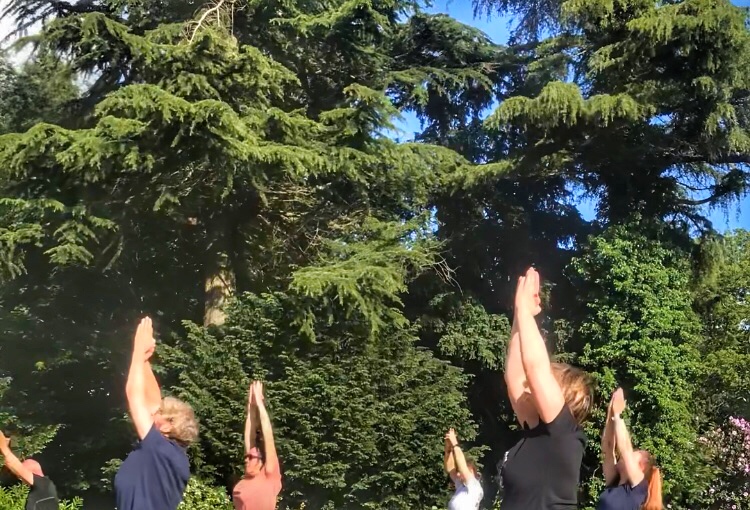
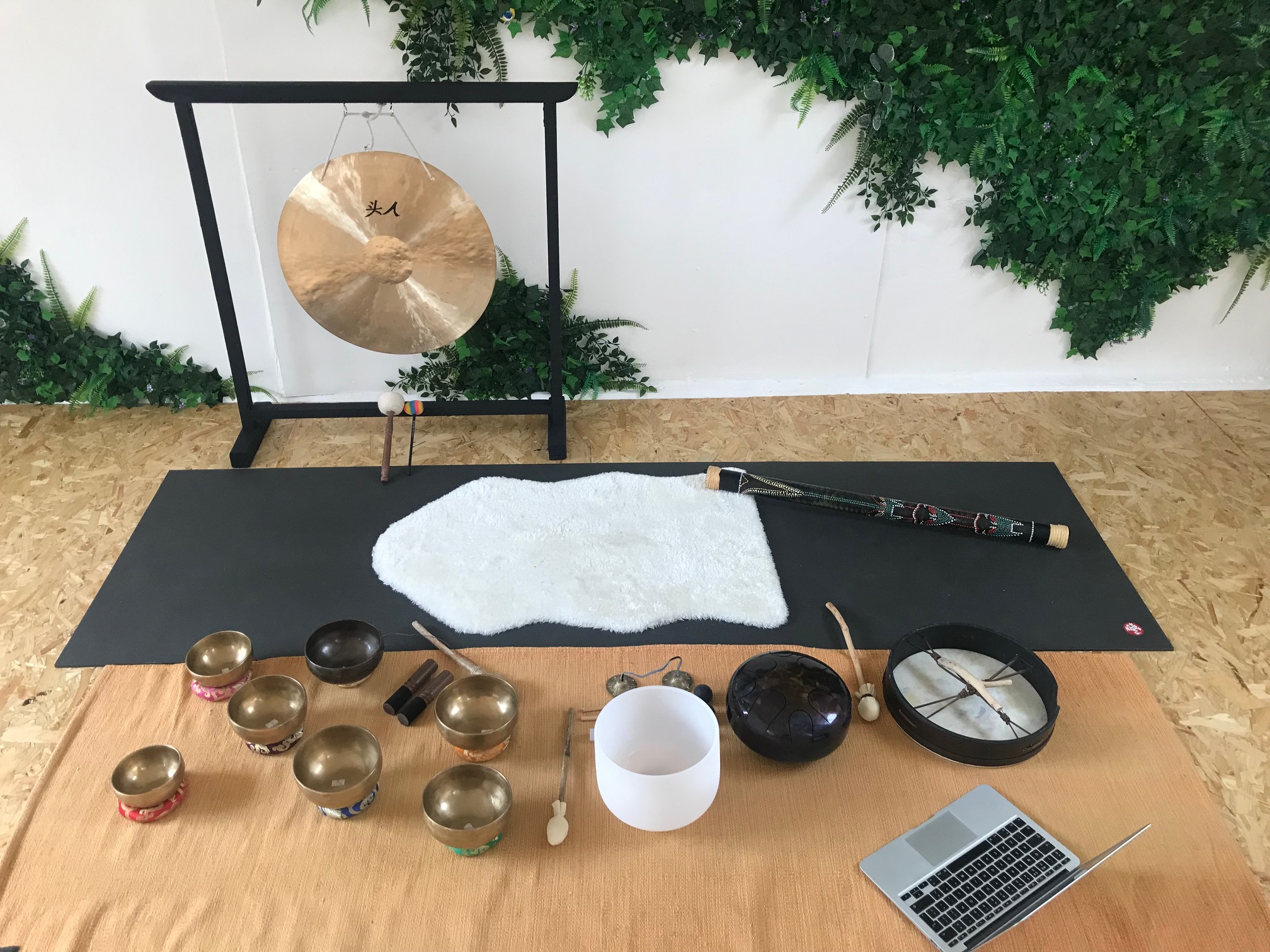
Creative Aromatherapy
The retreat will then move into creative design and blending of self-care products that will continue the natural balance element of this retreat. Discover essential oils that can be used to address your specific health concerns so that your body can be cleansed, strengthened and rebalanced. We will create natural, organic deodorant, body scrub, bath salts and sugar scrubs – a complete self care ritual that will lift the mind, body and spirit.
Lunch and Gin Tasting
You will then visit Mercia Spirits Lab for a wonderfully warm welcome and carefully designed lunch to complement the sattvic life. As you enjoy the wonderful platters available at the Spirit Lab, you will also be treated to a gin tasting – a special blend of Mercia Gin with herbal additions. (Vegan and gluten free diets can be catered for upon request).
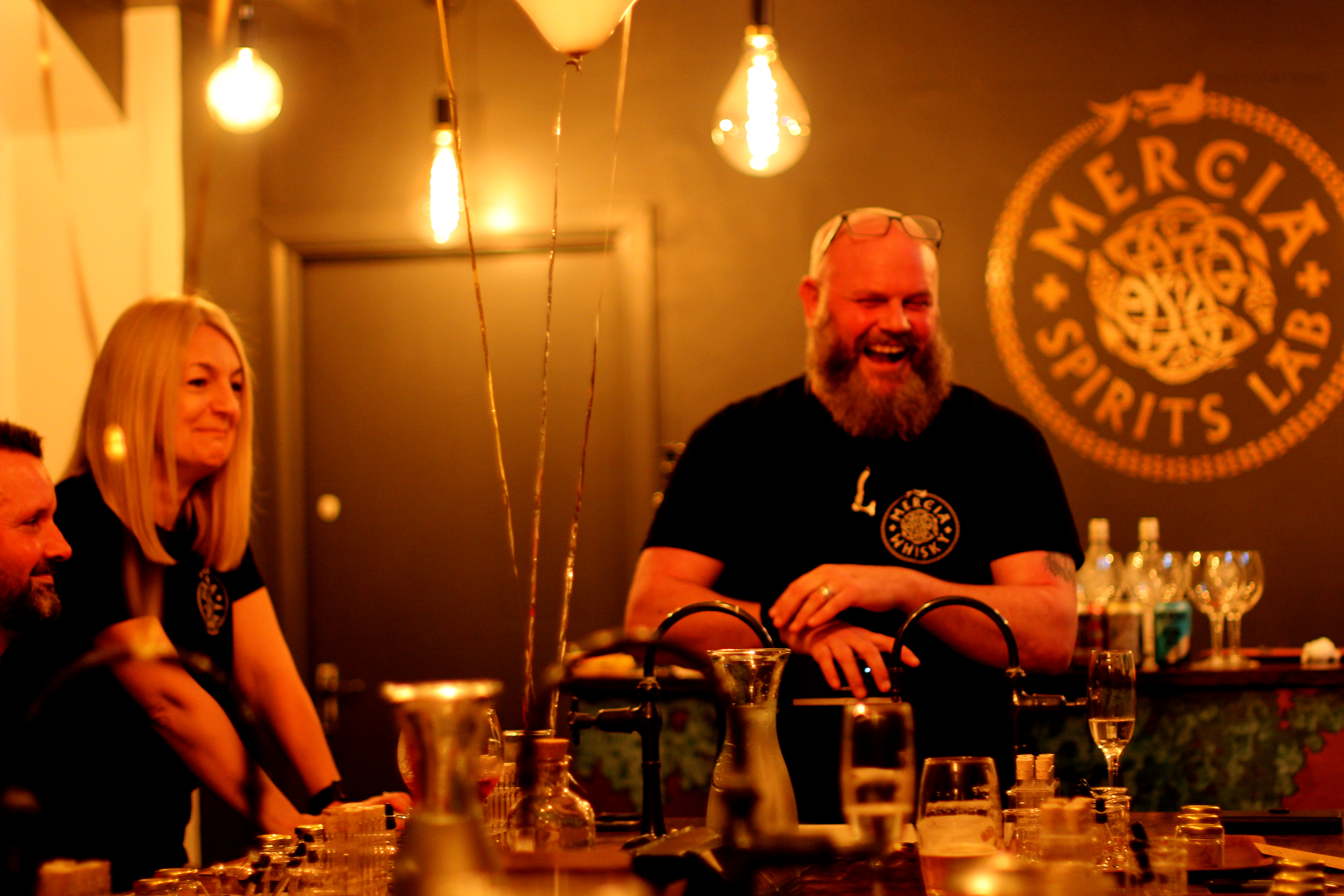
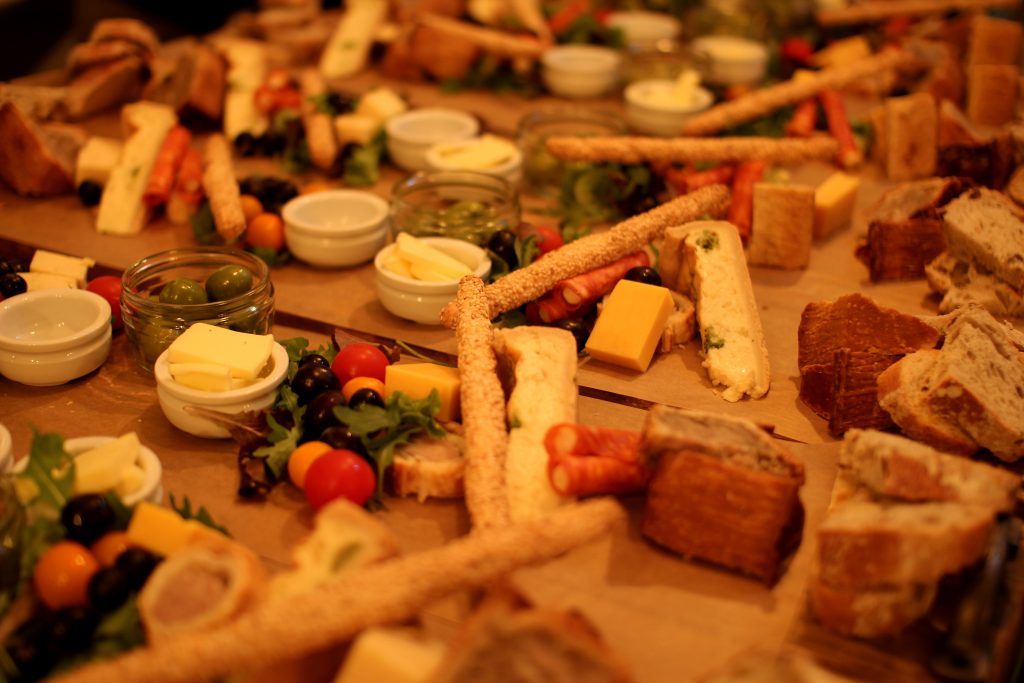
Yoga Nidra and Sound Bath
The retreat will then be rounded off with a wonderful yoga nidra practice – a guided visualisation to induce deep yogic ‘sleep’ where the mind is calmed into deeper brainwave states. The nidra will flow into a sound bath where you will absorb the wonderful sounds of instruments chosen to bring balance to mind and body. Relax deeply as the gong, Tibetan bowls, crystal bowls, chimes, wind and percussion instruments are played in this wonderful, soothing end to the retreat.
Participants will take away a bag of treats as well as the self-care products created on this retreat.
We can’t wait to meet you and help you to reclaim your natural balance.
NOTE: if the booking calendar fails to load, please book via this link
Book your space here for Sunday 24th July 2022:
It’s The Well Nest’s 5th Birthday!
We are celebrating our 5th birthday this month – come and join us for special offers, prizes and wonderful new workshops and experiences at The Vegan & Sustainable Living Festival 22nd – 24th April at Bishton Hall.
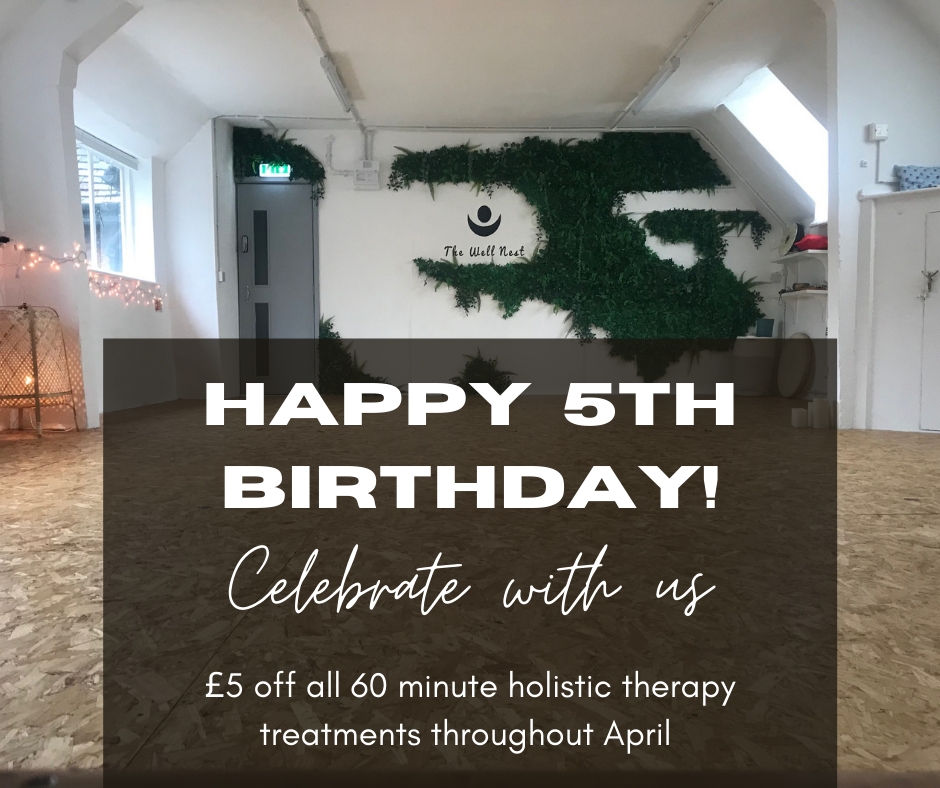
Thank You
I’d like to start by saying a huge, huge thank you to everybody that has joined me for a yoga class, workshop, meditation, therapy or treatment over the last 5 years. I’m truly grateful to each and every one of you that have joined me on this journey. You have all helped The Well Nest to survive through the toughest of years. A lot of you have become great friends over the years – some have been with me from the start! – and I have absolutely loved seeing you blossom on your wellbeing journeys. It’s a great privilege and a joy to work with people and share the gifts of holistic therapy, meditation and yoga…there is so much more on the way from The Well Nest!
What’s on This Month?
To celebrate our 5th birthday, there are number of special offers, workshops and experiences to try.
£5 off all 60 minute holistic therapy treatments – throughout the month of April, every holistic therapy (60 minutes or more) has £5 off. Get yourself booked in as soon as possible as spaces are already filling up.
Prize giveaway – enter our prize giveaway at The Vegan & Sustainable Living Festival. Your opportunity to win therapies, treatments and wellbeing products.
Workshops and experiences – This month there will be new workshops with sustainable themes such as making your own natural deodorant and body scrubs. There will be sound baths, mini holistic therapies such as Indian head massage and hand massage. Join me in the fabulous Nordic Tipi at the Vegan & Sustainable Living Festival.
Coming Soon…
More exciting things will be coming soon to The Well Nest…regular PILATES classes with our new teacher Sue: perfect for beginners and those wishing to begin a movement practice. Pilates is fantastic for building stability and core strength as well as assisting with hip and back strength and mobility. You might just find a new lease of life! If you’re interested in Pilates classes, use the button below to sign up to the waiting list and be the first to grab a space when classes go live:
MEDITATION classes with Hannah will soon be starting on a weekly basis at The Well Nest. This will be your weekly opportunity to take time out for yourself, practice meditation in a quiet and friendly atmosphere and seek advice on your practice. We will try meditations from lots of different traditions (not just mindfulness) so you can become a skilled meditator; able to find peace of mind even under the most difficult challenges of modern life.
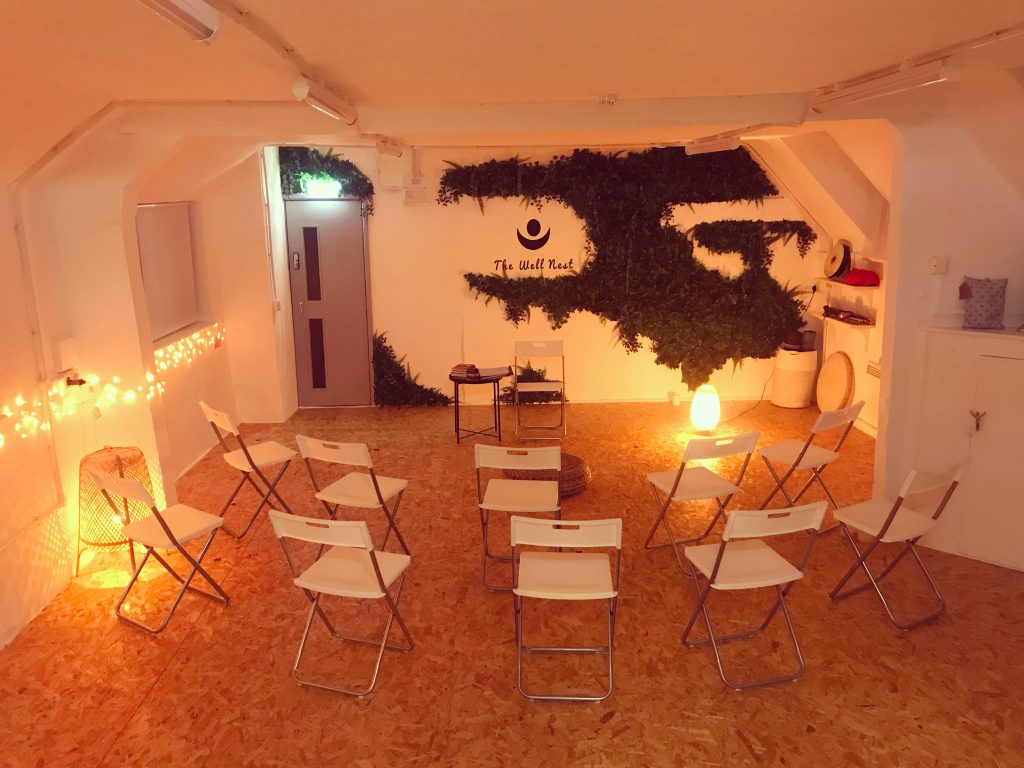
See you soon!
Men’s Wellbeing Series
The importance of men’s wellbeing can’t be stressed enough in a time when we hear frightening statistics about mental health, and about how men in particular tend to suffer with the stresses and strains of modern life. Men are much less likely to seek help for mental health issues, workplace stress or anxiety from life in general.
The Men’s Wellbeing Series aims to provide men with an opportunity to try wellbeing activities designed specifically for men, in a community space which aims to promote sharing and openness. This is an opportunity to invest in your health and wellbeing and learn techniques to calm the mind and release stress and tension from the body. Whether you suffer with the pressures of life already, or want to get a handle on your wellbeing before your health is affected, these workshops will provide valuable tools to help you take back control of your mental and physical wellbeing.
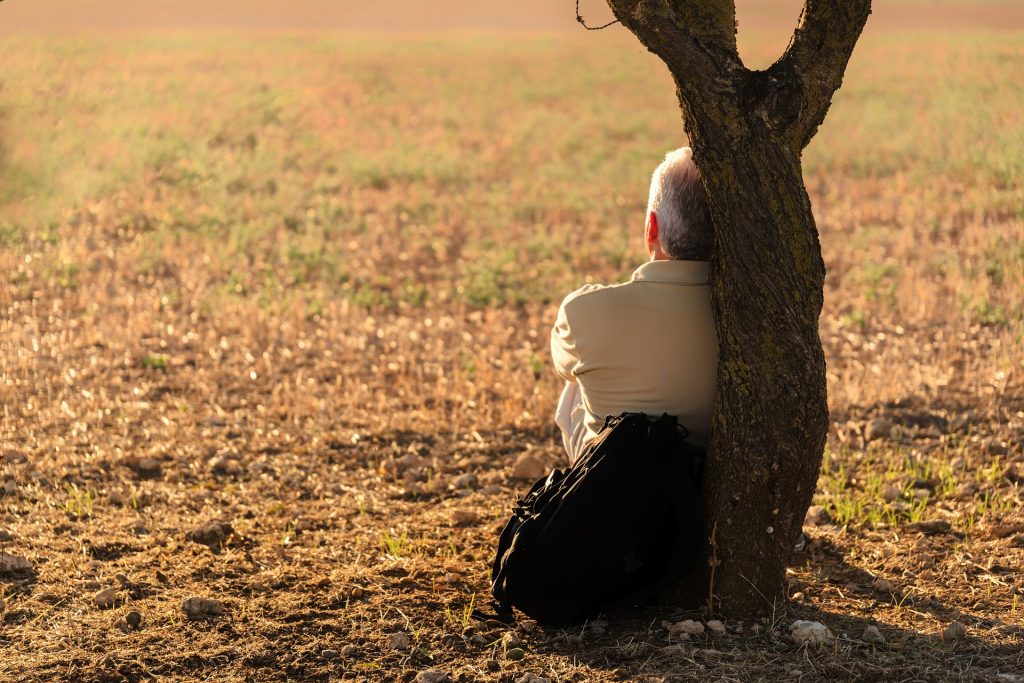
There are two options for men to try in this series, and no experience is necessary for either workshop. Each workshop can be booked individually (no need to do both) so you can choose both, or the one that appeals the most. To kickstart the Men’s Wellbeing Series, each workshop is offered at £5 off the usual investment.
The Workshops
Yoga for Mind and Body
Wednesday 26th June 2019, 6 pm – 7.30 pm, £15
A truly beneficial workshop for mind and body to help you unwind, de-stress, stretch and relax.
This workshop is a great place to start your yoga practice. The session will include dynamic movements for flexibility and strength and restorative, longer holds to encourage joint mobility and mindful movement. There will be guided relaxation and meditation included.
To find out more, or book your place – visit the Events page.
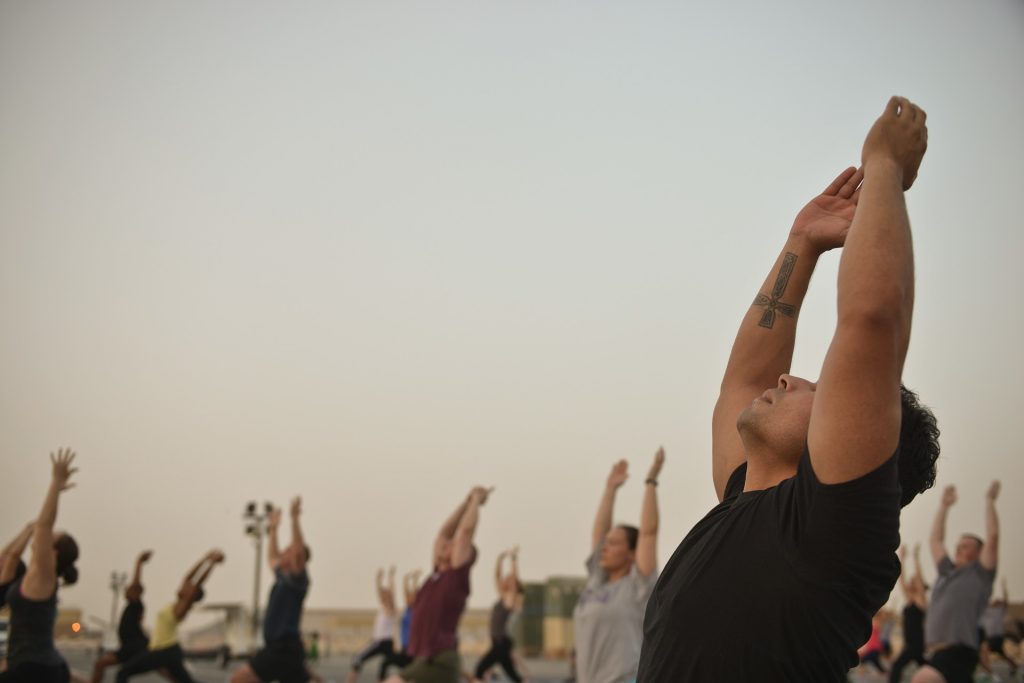
Introduction to Mindfulness
Tuesday 9th July 2019, 6 pm – 7.30 pm, £20
A fantastic introduction to mindfulness that will give you the opportunity to try practices and learn how mindfulness can help to calm the busyness of the mind.
The workshop will cover: what mindfulness is, how to connect with the present moment through awareness, using mindfulness to calm the busyness of the mind, using mindfulness in daily life and in stressful situations. Participants will try different mindfulness meditations which can be practiced during and after the session.
To find out more, or book your place – visit the Events page.
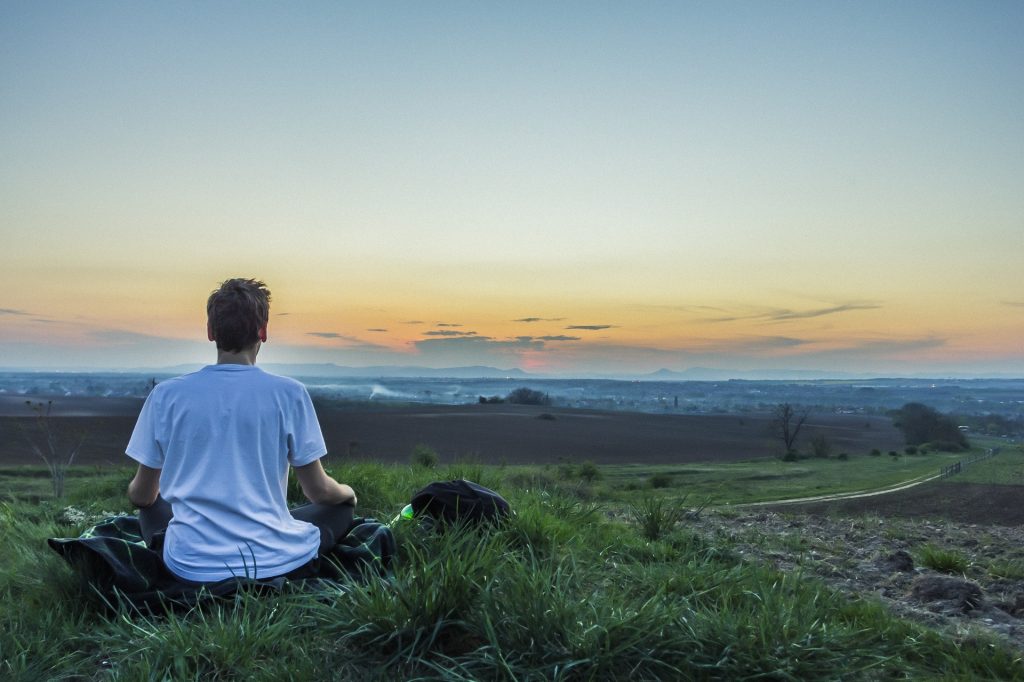
The Venue
The Workshops will be held at a great new community space above Candid Beer in Stafford town centre.
Candid is a craft beer bottleshop/taproom/coffeeshop/co-working space and events hub rolled into one. Community and conversation are central at Candid.
See you there!
A Mindful Christmas
The Christmas period is often a time of increased tension, stress or anxiety for many and can result in unpleasant experiences for individuals or families. Spending an extended period of time with friends and family doesn’t happen very often, so it would be beneficial for all if we were able to approach the festive season with a peaceful mind.
What causes stress at Christmas?
Mindfulness shows us that the struggles we go through in life often aren’t external to us (as we believe them to be) but are instead based in our perception and thoughts/beliefs about a situation. Most of us feel the pressure to get the right gifts for the right people, spend enough money but not too much money, make sure everyone has enough food and drink, wear the right outfit, attend the right events or parties, not drink too much,…and inevitably find time to demonstrate the right amount of merriment on social media…
A lot of the pressure we experience during the festive season can be found in our thought patterns or learned responses. Thoughts of how things should be and comparison to ideals or others can be harmful. If we tune into the present moment (no pun intended) and observe our true experience in the moment, we may find that we are able to enjoy the season more than previously. If something does go wrong – the turkey is dry, you couldn’t get that last minute gift because it had sold out – you can use mindfulness techniques to bring yourself back to the moment instead of getting caught in unhelpful negative thought patterns.

Tips to move mindfully through the festive season
A mindful queueing experience: You can’t avoid them, there are queues in shops, in supermarkets and on the roads this time of year. Every year we know it will happen the closer we get the Christmas, but every year we find ourselves frustrated, tense, irritated and sometimes infuriated with the constant waiting. Battling against the flow of life is a great source of stress for us. If we catch ourselves as frustration arises and instead of letting it take hold, we bring ourselves to our immediate experience of the moment. No judgment, no likes or dislikes, just observation. What does impatience feel like? Where is it held in the body? Try to feel it rather than think about it with the usual ‘why is this taking so long?’ ‘I should have joined the other queue’. You will notice almost straight away that tension eases out of your body and impatience gives way to patience naturally.
3 minute breathing space: When things get really testing (either during the build-up to Christmas day or during a family gathering for example) we often say things we regret or experience anger with ourselves or others. When we feel that a situation is getting too difficult, we can take 3 very effective steps to transform the moment mindfully.
- If you feel anger, impatience or frustration arising, catch it as soon as you are able and stop yourself from speaking or acting negatively. If you need to remove yourself from a situation, you can do so.
- Ground yourself in the moment by tuning into your breath. If you are agitated, try taking long slow breaths for a few minutes to give yourself space.
- Pay attention to what you are experiencing. Try to feel it in the body instead of listening to your thoughts about a situation or person. Bring your awareness back to the moment and your direct experience of it. Try to bring awareness to how a situation affects everybody, rather than just you.

Reclaim time: We always run out of time at Christmas. Not enough time to finish the shopping, wrap the gifts, visit friends and family, finish things off at work before the break. The constant rushing and pressure to ‘people please’ often leaves us more tired after the Christmas holiday than before it. This year, make a little time for yourself. The pressure we feel is often self-applied, so take a load off. It doesn’t have to be extravagant, but a little mindful self-care can go a long way. Take a walk outside and take in all that nature has to offer this season. Take a long bath with some essential oils. Read a new book. Find opportunities to bring yourself and your experience back into the present moment as often as possible instead of living in an imagined future or re-living a past event.
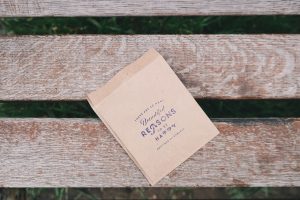
Christmas is the perfect time to practice gratitude; not just for the gifts given and received, but for all the fortunate things we experience in life that often get swamped by thoughts of how life should be or what we should have achieved ‘by now’. Take a few moments each day to list the things you are grateful for…I bet that list is much longer than your Christmas wish list.
Essential Oils for Fighting Colds
As the nights get longer and colder and the days get damper, the inevitable cold and flu season approaches. Chances are we will all suffer from a seasonal cold; whether it’s a head cold that lasts a few days or something a little more persistent that knocks you back for a few weeks, it’s good to know how you can help yourself to recover.
Waging war on the common cold often seems like a lost cause with most of us resorting to over the counter remedies that allow us to ‘soldier on’ at home and at work. Keeping warm and drinking fluids is good advice, but what if there was something more you could do?
Essential oils have some powerful properties to fight the common cold and can be used as part of a self-care routine that in itself can help you feel much better. Although I wouldn’t recommend casting aside medical advice in favour of home remedies, there are things you could try to complement medical advice that could help you feel better physically and mentally and get you back on your feet sooner.
So what can you do? There are a number of essential oils that have been used for centuries (and proven in modern trials) to combat the symptoms of colds.
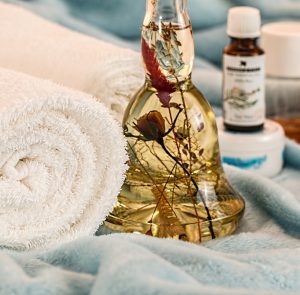
Oils you might like to have in your basic care kit:
Cinnamon, clove or rosemary – if mixed with warm water, can be effective as a surface cleanser or room mist to combat bacteria, viruses and fungus
Chamomile (Roman)– excellent at relieving cold and flu symptoms as it has antiseptic and antibacterial properties. It also has calming and sedative properties
Eucalyptus (Radiata) – Excellent in fighting respiratory tract infections
Lavender – Excellent calming effects and helps with sleep. Can also be used to treat headaches
Lemon – Has stimulating effects on the digestive system and is great at relieving headaches. Is generally good at uplifting mood and has antiseptic properties (making it great for room mist)
Peppermint – A wonder oil with analgesic, antiseptic, cooling and anti-inflammatory properties. Can relieve mucus and catarrh and relieve headaches
Tea Tree – An all-rounder for cold fighting; antiseptic, antibiotic, antiviral and antifungal. If you find the scent too antiseptic, it can be easily blended with lemon to disguise it.
Thyme (Linalol) – Great at fighting infections or contagious conditions and also at stimulating the immune system.
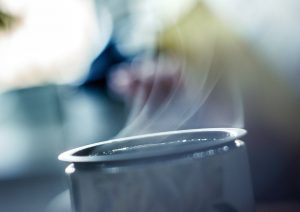
How to use the oils:
Steam – add up to 4 drops to a bowl of hot water and inhale the steam (placing a towel over the head). This is particularly useful for mucus, catarrh and headache relief. Alternatively, to get the benefits of steam and topical application, add a blend to the bath and soak yourself until you feel relief.
Topical application – a foot or hand massage is a great way to get the benefit of the oils and the relaxation of a massage. Add an oil blend to a carrier oil (such as coconut or grapeseed) and massage into hands and feet before bed. Blend the oils in the following quantity: 5 ml carrier oil, 1 drop of essential oil. 10 ml of carrier oil, 5 drops of essential oil.
Room mist or surface cleanser – Adding drops of a blend (up to 6 drops to 500 ml water, test on surfaces before full use) to warm water and shaking well (in a misting spray bottle) can make for an effective surface cleanser or room mist to clear away infectious microbes or bacteria.
Oil burner – get the benefits of the oils while relaxing in front of the TV or a good book. Add drops of essential oil (up to 5 drops) to 10ml of water and heat in an oil burner (over a candle). The room will be cleansed as well as your airways.
Experiment with blends that appeal to you as fragrances as well as for their cold and flu fighting properties and you will find something that works well for your mind as well as your body. Instead of fighting through and carrying on as normal, take some time to care for yourself through bathing with essential oils, giving yourself a massage or relaxing in a candle-lit room with an oil burner. Colds need not be the struggle that they usually are.
Winning Ways to Wellbeing
I visited a primary school in Warwickshire recently and was pleased to see a display promoting wellbeing through 5 practical steps that are now promoted as basic steps to wellbeing all over the world. The ‘5 ways to wellbeing’ outline simple steps that we can all take to improve our wellbeing and are now advocated by the NHS in order to help people actively take control of their wellbeing. Starting small and building to a holistic approach to wellbeing can help us lessen or avoid more long-term conditions such as depression or anxiety that can effect physical and mental health for many years.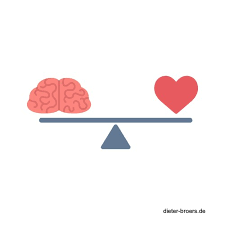
But what is wellbeing exactly? What are we trying to improve? Undoubtedly our mental health and states of mind, but wellbeing is a whole of life experience. An improvement in our overall quality of life and experience through practical, active steps to increase our levels of enjoyment, self-worth, physical and mental health and interactions with others.
This sounds like a big challenge, right? Definitely. But luckily the 5 ways to wellbeing really do work and are a great start to improving wellbeing.
The 5 Ways to Wellbeing
- Connect – There is strong evidence that being around others (friends, family, social groups) not only increases our all-round wellbeing, but also increases our longevity. Talking is the best therapy. You don’t have to share everything with others; start small. Make a meaningful connection instead of living in the digital world all the time. When you ask someone how they are, actually listen and pay attention to the answer. Speak to a stranger or make conversation while waiting in a queue. Try car sharing with a colleague; they might even become a friend.
- Be active – We have all read the decades of evidence that shows being physically active improves our mental health…so why do we still doubt it? Because it’s not easy to get active and stay active. But it’s not hard either. There are small changes we can make on the way to becoming more active and improving wellbeing. Take the stairs instead of the lift. Take a class after work with colleagues or organise a new sporting activity for all work colleagues to try. Go for a walk at lunchtime. Get off the bus a stop earlier and walk to your destination. If you feel like more of a challenge, take up a regular class that is proven to aid concentration, inner peace and help sleep…yoga is the obvious.
- Take notice – The basics of mindfulness; notice your surroundings. Be present in the moment and just ‘be’ instead of always ‘doing’. The only moment that exists is right now, so try to pay more attention to what is really going on instead of living in your head thinking about what has already happened or what might happen. Being mindful increases our awareness and knowledge of the self. If we know what we spend our time thinking about, we can start to change our thought patterns for the better. Living mindfully is a difficult task for the novice, but we can all try small steps. Choose a mindfulness cue; a sound or sight that whenever you hear/see it reminds you to take 60 seconds to be mindful and notice what’s going on in the environment.
- Keep learning – Not only is the mind kept active, but there is the chance for social interaction, being mindful and being active all rolled into one here. Continued learning can enhance self-esteem, motivation and can help you to prioritise goals and your own happiness. This doesn’t have to be a formal class to count as learning. You can try learning a new word each day, try reading the news in a foreign language, listen to classical music, join a book club.
- Give – By giving to others we develop our compassion which in turn increases our compassion for ourselves. Engaging in acts of kindness helps us to gain perspective on our own internal struggles and gain an understanding of the greater good. Giving your time, expertise or just random acts of kindness to others can greatly increase your wellbeing and decrease your attachment to seeking happiness through material gain.
A challenge…
I challenge you to try the 5 Winning Ways to Wellbeing for one week and track how you feel in body and mind. Leave a comment below about your experiences and check back to see my review of a week of Winning Ways to Wellbeing.
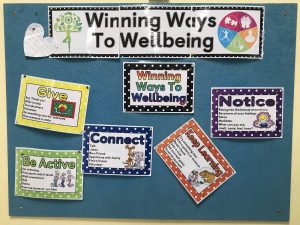
A Mindful Holiday
 We all love to ‘get away from it all’, ‘leave our troubles behind’ and enjoy a holiday (maybe several if we’re lucky) each year. We have a plan of where to go, what to see, what to do and even the places to eat, the number of hours we want to spend on a beach, the sights we want to tick off our ‘to do’ list. For how much of our holidays are we actually present? Really present…paying full attention to what we’re doing in the moment, not thinking about the next thing we’re going to do or how what we did this morning perhaps wasn’t as great as we thought it would be.
We all love to ‘get away from it all’, ‘leave our troubles behind’ and enjoy a holiday (maybe several if we’re lucky) each year. We have a plan of where to go, what to see, what to do and even the places to eat, the number of hours we want to spend on a beach, the sights we want to tick off our ‘to do’ list. For how much of our holidays are we actually present? Really present…paying full attention to what we’re doing in the moment, not thinking about the next thing we’re going to do or how what we did this morning perhaps wasn’t as great as we thought it would be.
We all hope that a trip away will be the ideal escape from work, from stress, from real life. As soon as we recognise that physically moving out of the sphere of our troubles or busyness doesn’t actually rid us of those things, then we can get the most out of our breaks and life generally.
Happiness and peace of mind can occur anywhere at any time, as long as we are in the present moment, paying attention, on purpose.
Paying attention
We can get the most out of our holidays by simply paying full attention to what we’re doing. I enjoy driving in continental Europe, and I think it’s because I pay so much more attention to the task of driving than I normally do. I’m constantly watching, listening, feeling the roads. My focus is fully on the task…and it becomes enjoyable. My mind is not on the destination and what I’m going to do when I get there…it’s just on the very moment of driving.
Pleasure and peacefulness can be found in many places that might usually frustrate us when we’re on holiday. Being stuck in traffic might seem like a waste of time leading to frustration or irritation, but it’s also a great opportunity to people watch, to observe the real life of another country or culture, to take in the sights and sounds of the places we pass through.
How to holiday mindfully
So, you’ve paid a lot of your hard earned money for a break – how do you get the most out of it by using mindfulness? There are a number of top tips for this…
- Walk as often as possible. This could be to get from A to B or to explore an area or just to get to the shops or beach. Leave the car behind. Being on foot gives you endless opportunity to practice mindfulness. Feel the ground under your feet, listen to everything you can hear in the moment; the language, the breeze, music, traffic, life going on right now. Focus on taking in life as it happens in the moment. When you are outdoors under your own steam, there is so much going on to focus your attention on now. If you aren’t able to walk, spend some time sitting outside and let your senses fully take in the environment.
- Use your senses. Don’t just look at things, take a picture and move on. We are very visual by nature and that’s fine, but we have 4 other senses to work with. Listen to what’s going on, what does the city/forest/beach/mountain where you are sound like? Think back to your last holiday – if someone asked you to describe what your destination sounded like, would you be able to do it? Similarly with smells, we only notice the extremes of good or bad. Try to focus in on the smells of the sea air, the leaves and vegetation, the traffic, any animals nearby, food cooking etc. All these things bring you into the present moment so you create stronger memories and find more peace, more genuine ‘escape’ from busyness. The same approach works with taste and touch; use all your senses to bring yourself into the present.
- Use photography differently. In the age of social media, we carefully construct or contrive images to draw the most appreciation from strangers. Try taking photographs of real moments, real life. Take photos that draw your attention to what your senses (other than sight) are experiencing. Create memories of touch sensation, smell, sound etc. In the present moment, it will draw you right into focussing on now, but later, your images will also serve as mindfulness cues that you can rely on in everyday life.
Remember, the core of mindfulness is to be present, whether that’s on holiday or at home. We often feel obliged to pack in as much as possible when we’re on holiday as it only happens a few times a year. Try to move from ‘doing’ to ‘being’. Don’t just pass through life, really live it.
How to Sleep Well and Rise Well in the Darker Months
Regulating your body clock can be a difficult task in the winter months as we set off for work in the dark and come home in the dark. It starts to become a struggle to get out of bed and sleep is often disturbed and unrefreshing. Add in the potential for Seasonal Affective Disorder (SAD) and it can feel like a real challenge to find motivation.
Women are often more susceptible to SAD but also more likely to struggle on without any help. The good news is, that there are some simple essential oil remedies that can both relax you in the evening for restful sleep and energise and motivate you for the day time.
Lavender (lavandula augustifolia) 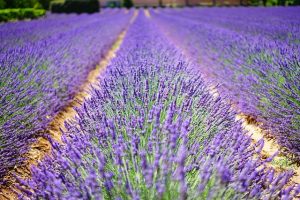
The champion of champions in the aromatherapists kit bag. This wonder plant is very well known for its sleep inducing qualities. It also has the ability to reduce anxiety and emotional stress and is a strong antioxidant making it excellent for pain reduction and skin replenishment. Add a few drops of lavender essential oil to a lavender filled pillow or bag and hang it near the head of the bed. The relaxing, floral aroma will help you drift off.
You can also add a few drops of lavender essential oil to water and using a mist spray bottle, mist your bedding so that the aroma is an encompassing experience.
Lemon (Citrus Limonum)
A long-time favourite of mine, this zesty essential oil is great for enlivening you when the afternoons and dark evenings are dragging and for enhancing concentration. Although lemon is a stimulating oil, it is also calming and works well as a pairing for lavender or on its own. As an extra benefit, lemon is great for calming the digestive system.
Add a few drops to a burner mixed with water to freshen the air after a long day at work (this is when mixing lemon with lavender would be a winning combination) or for use during the day, add a drop or two to a tissue and inhale the refreshing aroma while at your desk or in the car. If you don’t like the fragrance of lemon, you can try grapefruit essential oil instead.
Jasmine (Jasminum Officinale)
Jasmine has a distinctive sweet and flowery fragrance which can be quite heady for some. It does however, have great properties for relieving the blues that often come when the darker months are dragging on. When vaporised (by placing in a burner with some water) Jasmine stimulates the autonomic nervous system and enlivens and awakens the mind and body. It is also excellent as a room fragrance and can be mixed with water for use in a mist spray bottle.
Rose (Rosa Damascena) 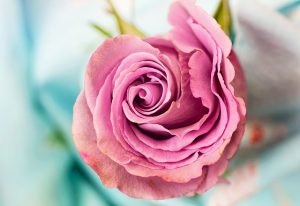
Known for its strong but pleasing floral fragrance, rose essential oil is excellent for calming anxiety or stress and is a friend to those who struggle to regulate sleeping in the darker months. Inhaling rose essential oil through vaporisation (by placing in a burner along with some water) will relax the mind and body. Not a scent to be used when looking for alertness, the properties of this oil are all about relaxation. It has a beneficial uplifting effect on the mood, but really helps sooth the body into a good night’s sleep.
Sandalwood (Santalum Album)
Sandalwood has been used for many hundreds of years for its antidepressant and anti-anxiety qualities. It is also recognised for its properties of focusing the mind. By adding a few drops of sandalwood to a tissue and inhaling throughout the day, it can help to improve the mood and attentiveness but also calm and relax the body.
Sandalwood makes an excellent room fragrance when vaporised, but has the same beneficial properties when burnt in the form of cones or incense sticks. The fragrance can be a little overpowering for some, so as an essential oil it should be used sparingly.
Mindfulness Courses Now Available
Mindfulness is a practice of widening our awareness and insight so that we can live in the present moment without judgment. The ability to watch our minds and the busyness within as an observer rather than through grasping onto thoughts, allows us to experience a greater freedom and peace of mind. The skills of mindfulness can be used in daily life to reduce stress and anxiety, be more productive and develop better relationships at work and at home and lead to a greater sense of physical and mental wellbeing.
The following mindfulness courses are now available in Stafford:
Introduction to Mindfulness—single session course (£25)
Available on the following dates from 6 pm—8 pm:
Tuesday 6th February
Tuesday 13th February
Eight Session Mindfulness Practitioner Course (Introductory offer price £130)
Course starts on Tuesday 27th February and runs weekly with one home practice week at week 5. Each session runs from 6 pm—7.30 pm.
Courses are held in a town centre location with nearby parking. Course materials will be provided.
For more information, visit the Mindfulness tab
